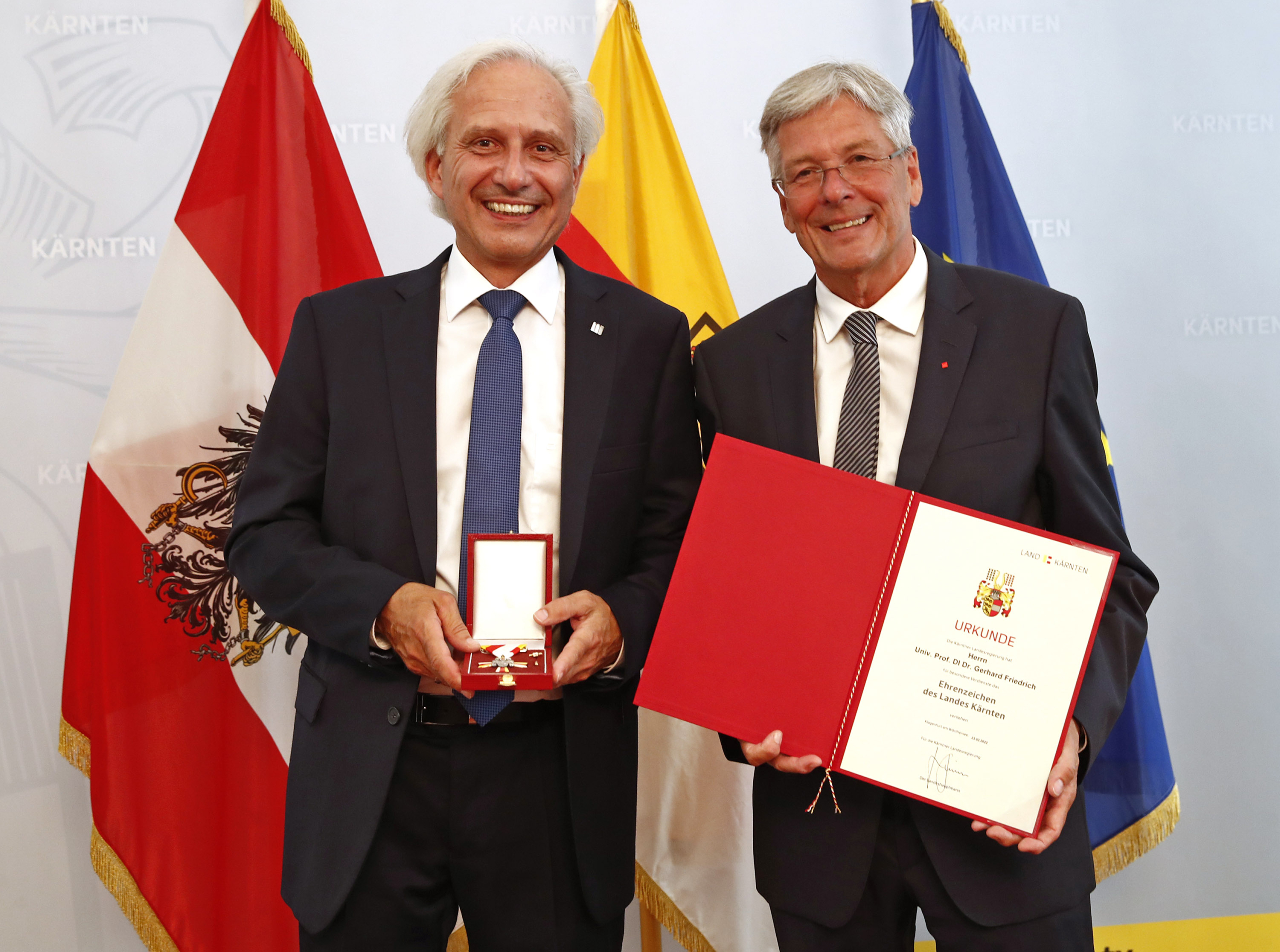Decoration of Honour of the Province of Carinthia for Univ.-Prof. Gerhard Friedrich
For his special services as a professor and in particular as the longstanding Dean of the Faculty of Technical Sciences at the University of Klagenfurt, Univ.-Prof. DI Dr. Gerhard Friedrich was awarded the Decoration of Honour of the Province of Carinthia by Governor Dr. Peter Kaiser on 18 July 2022 in the Mirror Hall of the Carinthian Provincial Government.
Mr Friedrich has worked persistently and highly successfully for a focus of Carinthia as an educational, scientific and business location in the field of technical sciences and digitalisation. Particularly noteworthy in this context is his great commitment in the field of artificial intelligence applications. In addition, he was able to successfully promote and expand networking between the Austrian economy and the University of Klagenfurt. Thanks to his initiative and tireless efforts, a significant expansion of the technical sciences in terms of personnel and content has been achieved, especially in the area of cybersecurity and modular robot systems.
During his tenure, among other things, the computer science workshop, the establishment of a drone hall, the establishment of the Silicon Austria Lab (SAL) and successful and promising cooperations with the research institution Joanneum Research, newly settled in Carinthia, were created. He has consistently pursued the orientation of the Faculty of Technical Sciences towards international visibility and scientific excellence, thus enabling highly gratifying results in the university rankings.
We warmly congratulate Univ.-Prof. Gerhard Friedrich!

Governor Peter Kaiser presents the Decoration of Honour of the Province of Carinthia to Gerhard Friedrich | Photo: LPD Kärnten/Eggenberger













